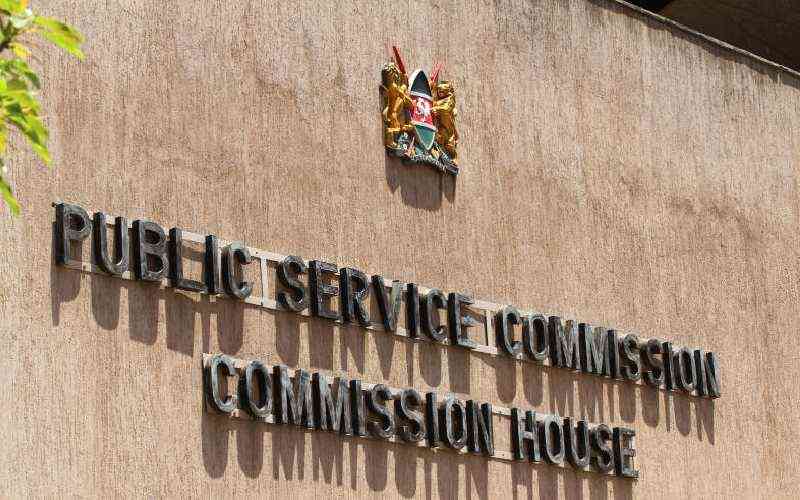Career progression in government jobs is a structured and strategic process that offers employees opportunities for growth, skill development, and increased responsibilities. However, unlike the private sector, where promotions may be based on performance alone, government job promotions often follow a set of established rules, qualifications, and timelines. Understanding these elements and positioning yourself effectively within them is key to advancing your career in the public sector.
Understanding the Structure of Government Jobs
Government jobs in Kenya, like in many other countries, are categorized into different job groups or cadres, each with a corresponding salary scale. Promotions within these job groups are usually based on a combination of factors, including years of service, performance, educational qualifications, and the availability of positions at higher levels. The structure is designed to ensure that promotions are fair, merit-based, and consistent with the needs of the public service.
Meeting Educational and Professional Qualifications
One of the most important factors in securing a promotion in a government job is meeting the required educational and professional qualifications for the next level. Often, promotions to higher job groups require advanced degrees, specialized training, or certifications. For instance, moving from a clerical position to a managerial role might require a bachelor’s degree or a master’s degree in a relevant field. Government employees are encouraged to pursue further education and professional development opportunities to meet these requirements and make themselves eligible for promotions.
Building a Strong Performance Record
In addition to educational qualifications, a strong performance record is critical for career progression in government jobs. Performance evaluations are often conducted annually, and they play a significant role in determining eligibility for promotion. Employees who consistently meet or exceed their job expectations, demonstrate initiative, and contribute positively to their department are more likely to be considered for advancement. It’s important to not only meet the basic requirements of your role but to go above and beyond, showing leadership, problem-solving skills, and a commitment to public service.
Networking and Building Relationships
Networking within the government sector is another key strategy for career advancement. Building relationships with colleagues, supervisors, and mentors can provide valuable insights into the promotion process and help you navigate the complexities of government bureaucracy. Being well-connected can also increase your visibility and open doors to opportunities for professional development, special assignments, or lateral moves that could enhance your qualifications for future promotions.
Taking on Additional Responsibilities
Volunteering for additional responsibilities or projects can demonstrate your readiness for a higher position. Government employees who take on leadership roles in special projects, committees, or task forces often gain valuable experience that makes them strong candidates for promotion. These opportunities allow you to showcase your skills, expand your knowledge, and contribute to your department’s success in a meaningful way.
Understanding the Promotion Process
The promotion process in government jobs is often governed by specific regulations and procedures that vary by department and job category. It’s important to familiarize yourself with these rules, including the timelines for promotion cycles, the criteria used to evaluate candidates, and the documentation required. Some promotions may require passing a competitive examination or interview, while others might be based on seniority and performance appraisals. Knowing the process in detail allows you to prepare effectively and position yourself as a top candidate.
Preparing for Promotion Interviews and Examinations
In many government departments, promotions to certain job groups require candidates to pass an interview or examination. Preparing for these assessments is crucial. Review the job description for the position you’re targeting, understand the key competencies required, and practice answering questions that demonstrate your qualifications and experience. It’s also advisable to seek feedback from colleagues who have undergone the promotion process or to participate in preparatory courses if available.
Staying Updated with Government Policies and Changes
Government policies, procedures, and priorities are subject to change, and staying informed about these changes is essential for career progression. Understanding new regulations, departmental restructuring, or shifts in government priorities can help you align your work with current objectives and position yourself as an adaptable and forward-thinking employee. This knowledge can also be useful in interviews or discussions about your career trajectory.
Seeking Mentorship and Career Guidance
Mentorship can play a pivotal role in helping you navigate your career in government service. A mentor with experience in the public sector can provide guidance, share their own career progression insights, and help you identify opportunities for growth. Additionally, career counseling services offered by many government departments can help you create a personalized career development plan that aligns with your professional goals.
Being Patient and Persistent
Finally, patience and persistence are key to career progression in government jobs. The structured nature of public sector employment means that promotions may not happen as quickly as in the private sector, and it’s important to stay motivated and focused on your long-term career goals. Continue to develop your skills, seek feedback, and take proactive steps to enhance your qualifications. With dedication and a clear strategy, you can achieve significant career growth within the government sector.
Conclusion
Career progression in government jobs requires a combination of meeting formal qualifications, building a strong performance record, networking, and understanding the promotion process. By taking a proactive approach to your career development, seeking out opportunities for growth, and remaining patient, you can successfully navigate the path to higher positions and greater responsibilities in the public sector. Government jobs offer a stable and rewarding career path, and with the right strategies, you can make the most of the opportunities available to you.





